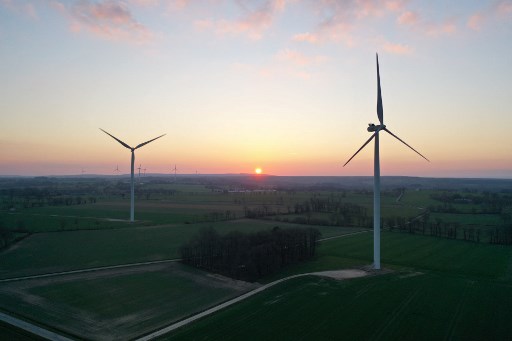
403
Sorry!!
Error! We're sorry, but the page you were looking for doesn't exist.
Turkey's Sunday Electricity Consumption Drops 13.5 percent, Reflects Energy Trends, Trade
(MENAFN) According to the official figures released by the Turkish Electricity Transmission Corporation (TEIAS) on Monday, Turkey witnessed a significant decline in daily electricity consumption on Sunday compared to the previous day, with a decrease of 13.5%. The total electricity consumed for the day amounted to 720,827 megawatt-hours. Analyzing the hourly data, the peak power consumption occurred at 9 p.m. local time (1800 GMT), reaching 32,893 megawatt-hours, while the lowest level of electricity usage was recorded at 7 a.m. local time (0400 GMT), with a consumption of 25,643 megawatt-hours.
In terms of electricity production, Sunday saw a total generation of 709,848 megawatt-hours, which indicated a 13.5% decrease compared to Saturday. Among the sources of electricity production, hydroelectricity plants contributed 19.4% to the overall generation, while imported coal plants and wind plants accounted for 18.6% and 15.4%, respectively.
The data also revealed that Turkey exported 2,275 megawatt-hours of electricity on Sunday, indicating its role as an electricity exporter. On the other hand, the country imported 13,255 megawatt-hours of electricity during the same period, highlighting the significance of cross-border energy trade.
These statistics provide valuable insights into Turkey's electricity consumption and production patterns. The decrease in daily electricity consumption on Sunday could be attributed to various factors, including lower demand due to specific day-related activities or changes in weather conditions. Additionally, the distribution of electricity generation among different sources showcases Turkey's diverse energy portfolio, with a substantial contribution from renewable sources like hydroelectricity and wind power.
The availability and analysis of such data play a crucial role in monitoring and managing the energy sector, enabling policymakers and stakeholders to make informed decisions regarding energy planning, infrastructure development, and ensuring a reliable and sustainable electricity supply for the country.
In terms of electricity production, Sunday saw a total generation of 709,848 megawatt-hours, which indicated a 13.5% decrease compared to Saturday. Among the sources of electricity production, hydroelectricity plants contributed 19.4% to the overall generation, while imported coal plants and wind plants accounted for 18.6% and 15.4%, respectively.
The data also revealed that Turkey exported 2,275 megawatt-hours of electricity on Sunday, indicating its role as an electricity exporter. On the other hand, the country imported 13,255 megawatt-hours of electricity during the same period, highlighting the significance of cross-border energy trade.
These statistics provide valuable insights into Turkey's electricity consumption and production patterns. The decrease in daily electricity consumption on Sunday could be attributed to various factors, including lower demand due to specific day-related activities or changes in weather conditions. Additionally, the distribution of electricity generation among different sources showcases Turkey's diverse energy portfolio, with a substantial contribution from renewable sources like hydroelectricity and wind power.
The availability and analysis of such data play a crucial role in monitoring and managing the energy sector, enabling policymakers and stakeholders to make informed decisions regarding energy planning, infrastructure development, and ensuring a reliable and sustainable electricity supply for the country.

Legal Disclaimer:
MENAFN provides the
information “as is” without warranty of any kind. We do not accept
any responsibility or liability for the accuracy, content, images,
videos, licenses, completeness, legality, or reliability of the information
contained in this article. If you have any complaints or copyright
issues related to this article, kindly contact the provider above.


















Comments
No comment